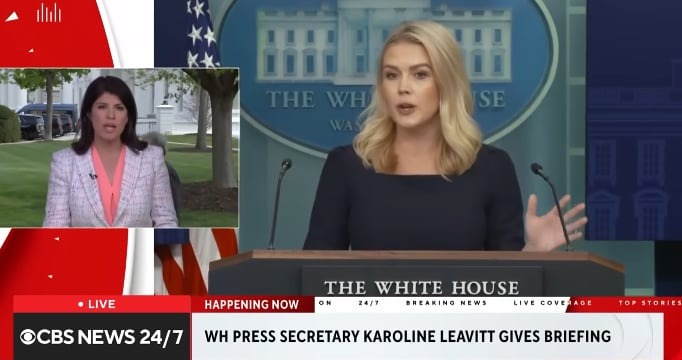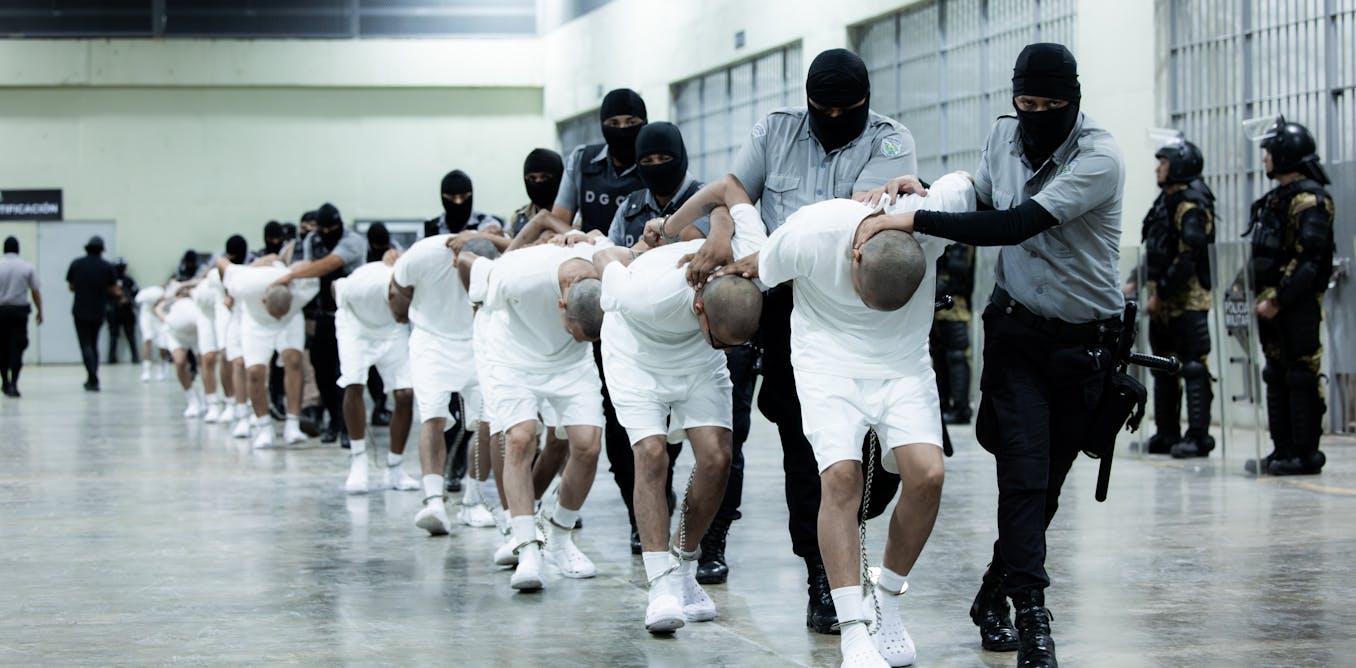
In a recent press briefing, White House Press Secretary Karoline Leavitt addressed the administration’s decision to deport over 200 individuals to El Salvador, including Kilmar Abrego García, a Maryland resident who was erroneously sent to a notorious Salvadoran prison. Leavitt’s remarks have sparked significant debate, raising questions about due process, international relations, and human rights.
The Deportation Controversy
The deportations were carried out under the Alien Enemies Act of 1798, which grants the U.S. government authority to expel non-citizens deemed a threat to national security. Leavitt emphasized that the individuals deported were identified as members of transnational criminal organizations, specifically the Tren de Aragua and MS-13 gangs. She assured the public that agencies like Customs and Border Protection (CBP), Immigration and Customs Enforcement (ICE), and the Department of Homeland Security (DHS) had thoroughly vetted the deportees, asserting, “I can assure the American people that Customs and Border Patrol, ICE, and the Department of Homeland Security are sure about the identities of the individuals who were on these planes and the threat that they pose to our homeland.”
However, the deportation of Abrego García has drawn particular scrutiny. Despite a 2019 immigration judge’s ruling that he should not be deported to El Salvador due to the risk of gang violence, Abrego García was sent to the Terrorism Confinement Center (CECOT) in El Salvador. His legal team argues that this action violated both U.S. and international law, as it disregarded existing court orders and exposed him to potential harm.
Legal and Humanitarian Concerns
The legal community has expressed alarm over the administration’s actions. U.S. District Judge Paula Xinis criticized the government’s failure to comply with judicial orders, stating that Abrego García’s continued detention in El Salvador constituted “irreparable harm.” She has expedited proceedings to address the situation, highlighting the urgency of the matter.
Human rights organizations have also condemned the deportations. Advocates argue that sending individuals to El Salvador’s CECOT, a facility known for overcrowding and alleged human rights abuses, violates international standards. The United Nations and various non-governmental organizations have called for immediate action to ensure the safety and rights of those deported.

International Repercussions
The situation has strained relations between the United States and El Salvador. Salvadoran President Nayib Bukele has refused to comply with U.S. court orders to facilitate the return of Abrego García, labeling him a “terrorist.” This stance has elicited criticism from U.S. lawmakers and human rights groups, who view it as an abdication of responsibility for the welfare of individuals under the country’s custody.
Additionally, the refusal to allow U.S. Senator Chris Van Hollen to visit Abrego García in El Salvador has further exacerbated tensions. Van Hollen’s attempt to assess the conditions of detainees firsthand was blocked by Salvadoran authorities, who cited the U.S. government’s funding of the detainees’ imprisonment as justification for denying access.
White House Justifications
In her briefing, Leavitt defended the administration’s actions, framing the deportations as a necessary measure to protect American citizens from gang-related violence. She described the operation as a “counterterrorism” effort, emphasizing the cost-effectiveness of deporting individuals to El Salvador compared to detaining them within the United States. “It costs pennies on the dollar to send them to El Salvador,” Leavitt stated, underscoring the financial benefits of the policy.
Leavitt also questioned the validity of verbal court orders, suggesting that they may not carry the same weight as written orders. This assertion has been met with skepticism from legal experts, who argue that all court orders, regardless of form, must be respected and enforced.
Political and Public Response
The deportations have become a focal point in the ongoing debate over immigration policy in the United States. Critics argue that the administration’s actions undermine the rule of law and jeopardize the rights of individuals. Supporters contend that the measures are necessary to combat transnational crime and protect national security.
The controversy has also intensified partisan divisions. Democratic lawmakers have called for investigations into the legality and ethics of the deportations, while some Republican leaders have expressed support for the administration’s approach, emphasizing the need for strong enforcement of immigration laws.
Looking Ahead
As legal challenges to the deportations continue, the situation remains fluid. The U.S. Supreme Court’s involvement may be necessary to resolve conflicting rulings and clarify the scope of executive authority in immigration matters. Additionally, international pressure could influence Salvadoran authorities to reconsider their stance on detainee treatment and cooperation with U.S. officials.
The case of Kilmar Abrego García serves as a poignant reminder of the complexities and human costs associated with immigration enforcement policies. It underscores the importance of upholding legal principles, safeguarding human rights, and ensuring that actions taken in the name of national security do not erode the foundational values upon which democratic societies are built.





